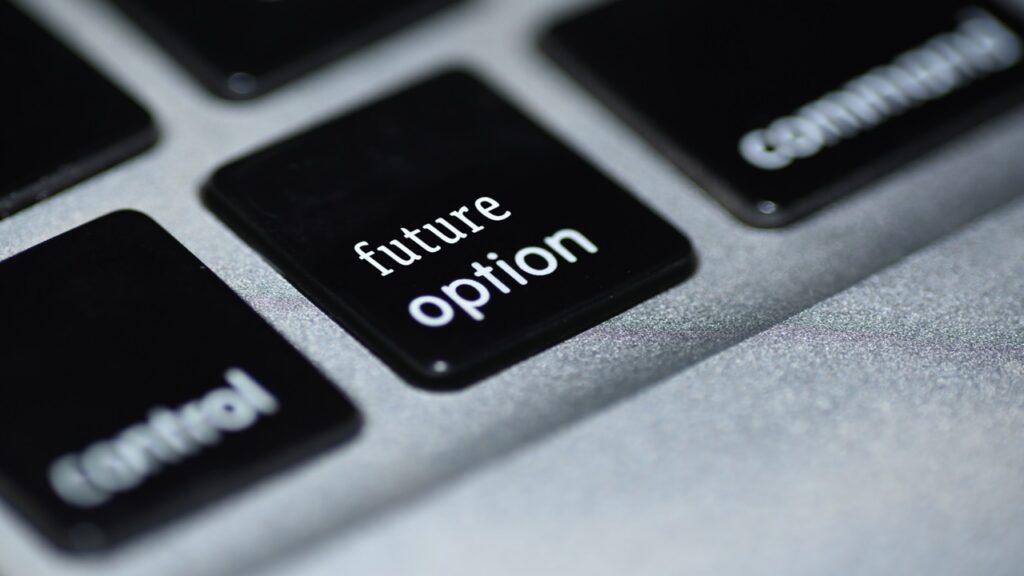Futures and options, the so-called golden ticket to financial freedom, the darlings of financial influencers, and the “make my own Antilia” card. These days, option pricing is more popular than ever—like, really, it’s everywhere! Every Tom, Dick, and Harry is sold this dream of making boatloads of money through a “simple” tool called FnO trading. Sounds like a sweet deal, right? Something we should all try, maybe?
But let’s slow down and really see if it’s as good as it sounds and how you should approach FnO trading.

What is FnO?
Let’s take a quick look at the history.
Futures Contracts: A long, long time ago, farmers and traders wanted to avoid losing money because of changing prices. So, they made deals to set prices for crops ahead of time. This happened way back in ancient Mesopotamia around 1750 BC. That’s where futures contracts started!
Options Contracts: Options trading has been around for a while too. In ancient Greece, around 332 BC, a guy named Thales of Miletus used options to lock in the price for olive presses before the harvest. He was basically doing options trading before it even had a name!
Moving to Modern Times
17th Century Japan: In the 1600s, Japan had one of the first official futures markets at the Dojima Rice Exchange. People traded rice like it was gold!
17th Century Netherlands: Over in the Netherlands, people were trading options on tulip bulbs during the tulip mania in the 1630s. They were going crazy over tulips!
The Black-Scholes Option Pricing Model
In the early 1970s, Fischer Black, Myron Scholes, and Robert Merton created a model to figure out the price of options. This model looked at things like the current price, the option’s strike price, and how much time was left until it expired. It was a huge deal—finally, a way to help us make money in the markets!
But here’s a twist—Myron Scholes and Robert Merton, the guys behind the model, ended up losing a lot of money and almost went bankrupt. So much for being the kings of financial freedom! But hey, Edison didn’t get to see the full power of electricity like we do, so maybe it’s the same deal.
The Reality Check
But here’s why this matters. FnO trading has become super popular in India, especially with the rise of Bank Nifty weekly expiry. While FnO can be a great tool to protect your investments if used right, most people don’t use it that way. The big financial dreams influencers sell us? They’re mainly making those influencers rich, not us.

The Hard Truths of FnO Trading
Big Dreams, Small Returns: A study by SEBI in 2022 showed that 89% of traders in FnO lost money, and only 11% made any profits. Even fewer people keep making profits in the long run. And those profits? They’re often smaller than the interest you’d get from a fixed deposit!
No Real Value: Trading from home doesn’t add any value to the economy or society. It’s not like investing, where your money helps businesses grow. In FnO trading, your gains mean someone else is losing. It’s a zero-sum game.
The Mental Stress: FnO trading is tough on your mind and emotions. Losing money keeps you glued to the screen, and making money can make you anxious. Over time, this stress can hurt your mental and even physical health.
The Bottom Line
FnO was supposed to be a great tool for investors, but now it’s mostly a way for influencers to sell a dream—a dream that, for most people, just isn’t real. Yes, some people do make it, but the truth is that most won’t. Sensibull founder Abid Hasan once said in a podcast that it breaks his heart to see young Indians losing money in FnO trading, money that could have been better spent on education and skills to build a real future.
Shortcuts might sound good, but they rarely work. We need to stop believing in these rare success stories as the norm and be smart in a world where everyone is trying to sell us an unrealistic dream of easy money. Because, in the end, it’s often just making money for them, not us.



